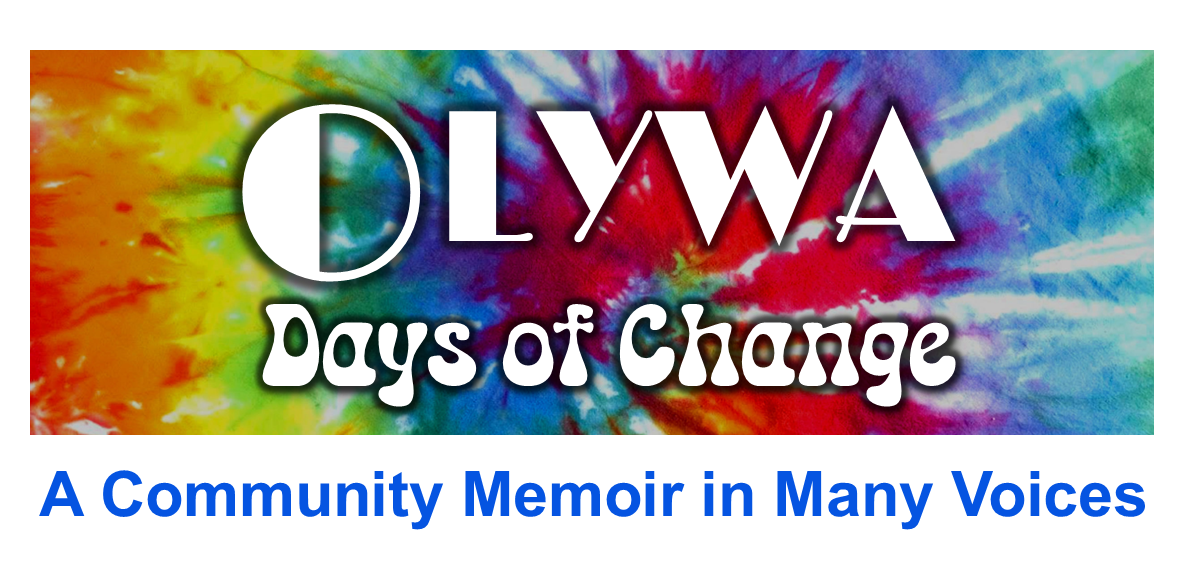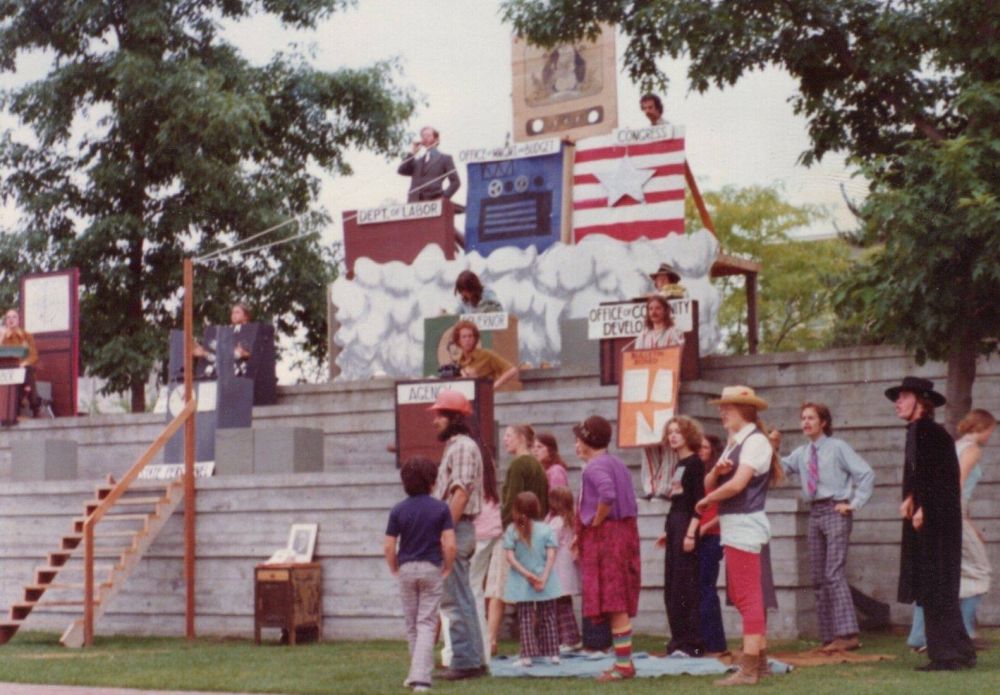A Brief History of Theatre of the Unemployed – By Don Orr Martin
Our troupe came together organically and by serendipity during a time of economic recession and political and cultural turmoil. We were an unusual, evolving group of mostly white, creative, working-class, young adults who wanted our perspectives to be heard. Our hard-working collective created or produced 17 plays on a shoestring from 1975 until 1981 . . . Participating in the radical political and cultural upheavals of the late 1960s and early ’70s, we developed a love of collective performance as a resource for personal and institutional transformation . . . critical thinking and resistance to oppression.

